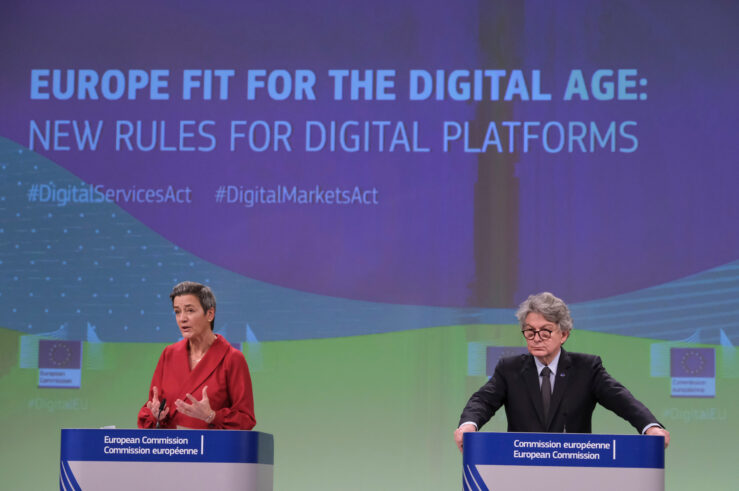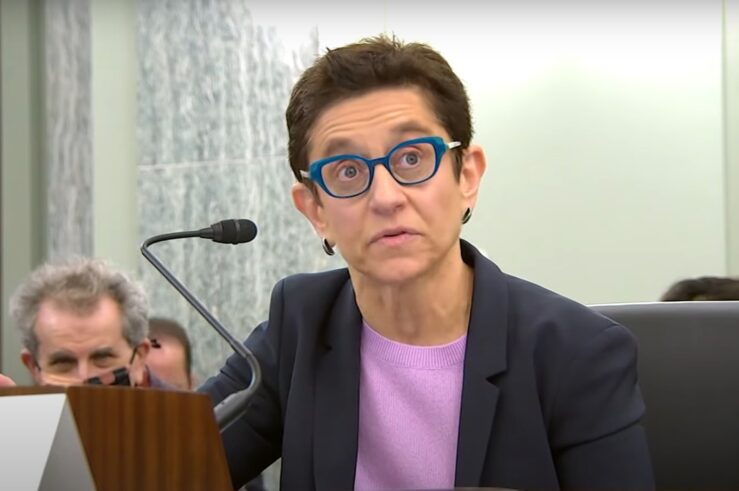Showing archive for: “Tying & Bundling”
FTC Section 5 Statement: Less Guidance Than Meets the Eye
On Nov. 10, the Federal Trade Commission (FTC) issued a new statement explaining how it will exercise its standalone FTC Act Section 5 authority. Despite the length of the statement and the accompanying commentaries from most of the commissioners, there is less guidance than one might expect from so many words. One thing is clear, ... FTC Section 5 Statement: Less Guidance Than Meets the Eye
FTC Biweekly UMC Roundup – Mountain of Puffery Edition
Research still matters, so I recommend video from the Federal Trade Commission’s 15th Annual Microeconomics Conference, if you’ve not already seen it. It’s a valuable event, and it’s part of the FTC’s still important statutory-research mission. It also reminds me that the FTC’s excellent, if somewhat diminished, Bureau of Economics still has no director; Marta ... FTC Biweekly UMC Roundup – Mountain of Puffery Edition
FTC Biweekly UMC Roundup – 88 mph Edition
We’re back for another biweekly roundup – and what a biweekly it’s been! The JCPA rode, died, and rides again. Yet AICOA is AWOL. FTC Chair Lina Khan went to Congress and back to (Fordham) law school, making waves wherever she went. DOJ added to the agencies’ roster of recently lost cases. And the FTC ... FTC Biweekly UMC Roundup – 88 mph Edition
The Case Against Self-Preferencing as a New Antitrust Offense
The practice of so-called “self-preferencing” has come to embody the zeitgeist of competition policy for digital markets, as legislative initiatives are undertaken in jurisdictions around the world that to seek, in various ways, to constrain large digital platforms from granting favorable treatment to their own goods and services. The core concern cited by policymakers is ... The Case Against Self-Preferencing as a New Antitrust Offense
The Bitter Fruits of Federal Antitrust ‘Reform’ Legislation
Much ink has been spilled regarding the potential harm to the economy and to the rule of law that could stem from enactment of the primary federal antitrust legislative proposal, the American Innovation and Choice Online Act (AICOA) (see here). AICOA proponents, of course, would beg to differ, emphasizing the purported procompetitive benefits of limiting ... The Bitter Fruits of Federal Antitrust ‘Reform’ Legislation
The ABA’s Antitrust Law Section Sounds the Alarm on Klobuchar-Grassley
Sens. Amy Klobuchar (D-Minn.) and Chuck Grassley (R-Iowa)—cosponsors of the American Innovation Online and Choice Act, which seeks to “rein in” tech companies like Apple, Google, Meta, and Amazon—contend that “everyone acknowledges the problems posed by dominant online platforms.” In their framing, it is simply an acknowledged fact that U.S. antitrust law has not kept ... The ABA’s Antitrust Law Section Sounds the Alarm on Klobuchar-Grassley
How the FTC Could, but Won’t, Use Its Rulemaking Authority to Allow Aftermarket Parts
We used to have a robust aftermarket for non-original equipment manufacturer (OEM) automobile repair parts and “independent” repair services, but car companies have increasingly resorted to design-patent protection to prevent competition in the supply of cosmetic repair parts such as bumpers, hoods, panels, and mirrors. The predictable and intended consequence has been to raise prices ... How the FTC Could, but Won’t, Use Its Rulemaking Authority to Allow Aftermarket Parts
Rules Without Reason
In his July Executive Order, President Joe Biden called on the Federal Trade Commission (FTC) to consider making a series of rules under its purported authority to regulate “unfair methods of competition.”[1] Chair Lina Khan has previously voiced her support for doing so.[2] My view is that the Commission has no such rulemaking powers, and ... Rules Without Reason
In Apple v Epic, 9th Circuit Should Remember that Antitrust Forbids Enhancing, not Exercising, Market Power
On March 31, I and several other law and economics scholars filed an amicus brief in Epic Games v. Apple, which is on appeal to the U.S. Court of Appeals for Ninth Circuit. In this post, I summarize the central arguments of the brief, which was joined by Alden Abbott, Henry Butler, Alan Meese, Aurelien ... In Apple v Epic, 9th Circuit Should Remember that Antitrust Forbids Enhancing, not Exercising, Market Power
The Internationalization of Due Process, Federal Antitrust Enforcement, and the Rule of Law
The acceptance and implementation of due-process standards confer a variety of welfare benefits on society. As Christopher Yoo, Thomas Fetzer, Shan Jiang, and Yong Huang explain, strong procedural due-process protections promote: (1) compliance with basic norms of impartiality; (2) greater accuracy of decisions; (3) stronger economic growth; (4) increased respect for government; (5) better compliance ... The Internationalization of Due Process, Federal Antitrust Enforcement, and the Rule of Law
The Return of (De Facto) Rate Regulation: Title II Will Slow Broadband Deployment and Access
President Joe Biden’s nomination of Gigi Sohn to serve on the Federal Communications Commission (FCC)—scheduled for a second hearing before the Senate Commerce Committee Feb. 9—has been met with speculation that it presages renewed efforts at the FCC to enforce net neutrality. A veteran of tech policy battles, Sohn served as counselor to former FCC ... The Return of (De Facto) Rate Regulation: Title II Will Slow Broadband Deployment and Access
App Stores as Public Utilities?
In a new paper, Giuseppe Colangelo and Oscar Borgogno investigate whether antitrust policy is sufficiently flexible to keep up with the dynamics of digital app stores, and whether regulatory interventions are required in order to address their unique features. The authors summarize their findings in this blog post. App stores are at the forefront of ... App Stores as Public Utilities?














